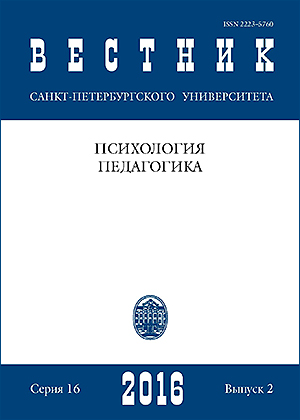Cognitive reserve as a psychological and psychophysiological resource in aging
Abstract
Cognitive aging, just like biological aging, is a heterogeneous and highly individual process. As a result of this process, even people having physiological brain damage associated with Alzheimer disease (revealed through post-mortal studies) can demonstrate no impairment in cognitive functioning. Th e present paper is a review of modern studies of cognitive reserve phenomenon. In the paper main components of cognitive reserve proposed by Ya. Stern are refl ected, as well as factors and possible empirical approaches to investigation of cognitive reserve. Among the factors education, bilinguism, noradrenaline functioning and emotional processes are mentioned. Psychological and psychophysiological methods of cognitive reserve investigation are described. In particular, attention is paid to the model of cognitive reserve proposed by M. Nucci and the opportunities of cognitive reserve investigation using PET. As a conclusion, the possibility of application of this concept in Russian studies and possible specifi cs of such studies is discussed.
Keywords:
cognitive reserve, aging, aging factors, cognitive functions, emotional processes
Downloads
References
References
Published
How to Cite
Issue
Section
License
Articles of "Vestnik of Saint Petersburg University. Psychology" are open access distributed under the terms of the License Agreement with Saint Petersburg State University, which permits to the authors unrestricted distribution and self-archiving free of charge.




